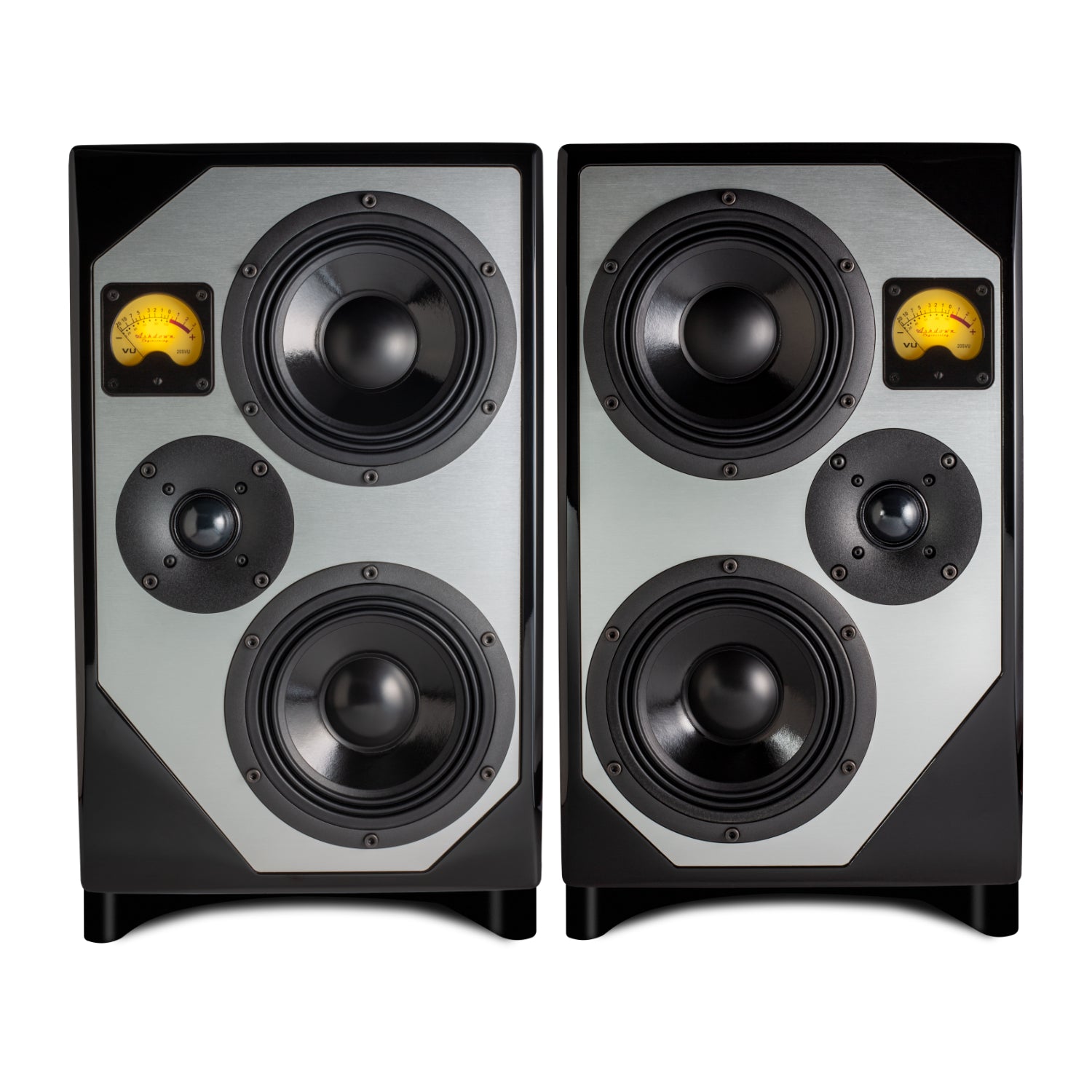
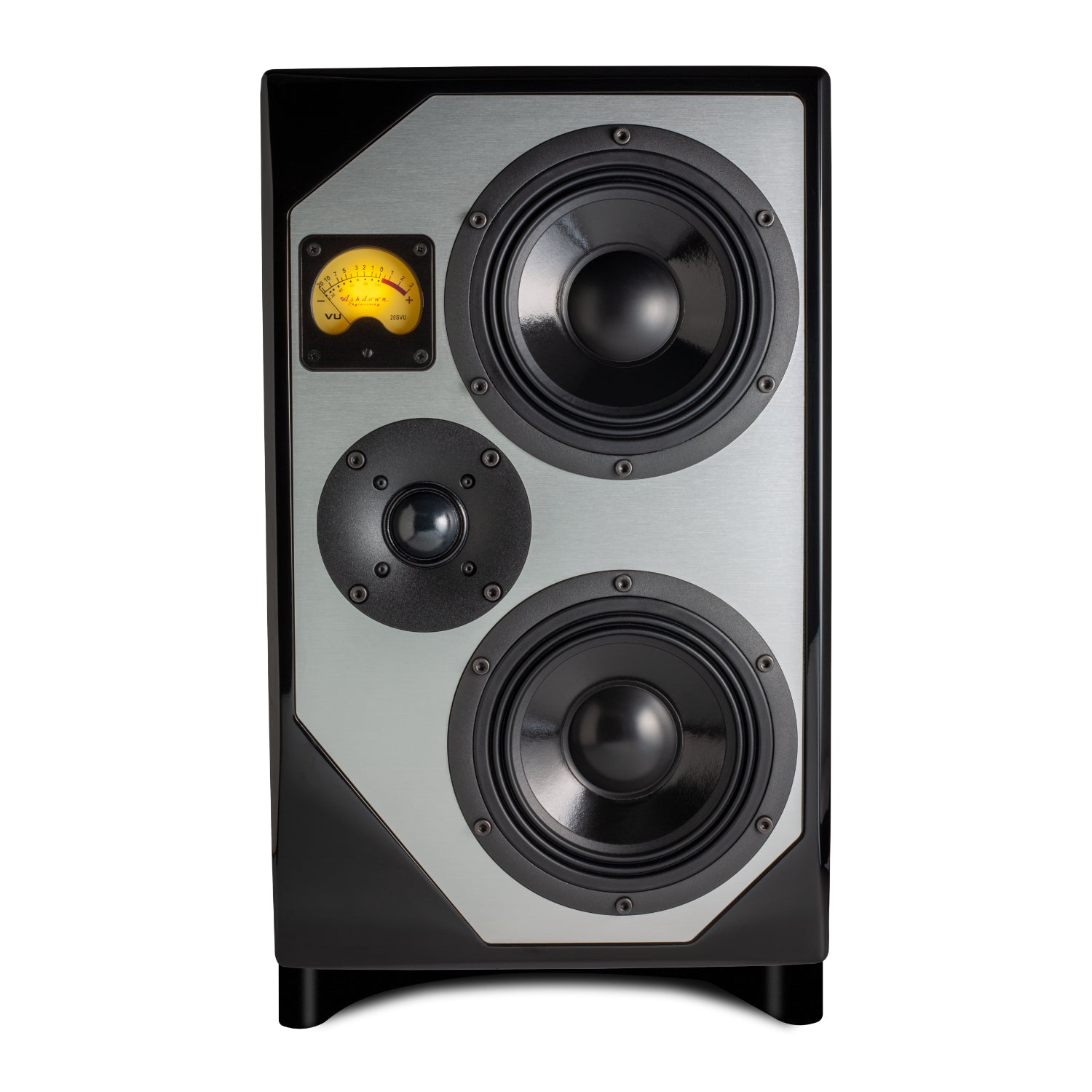
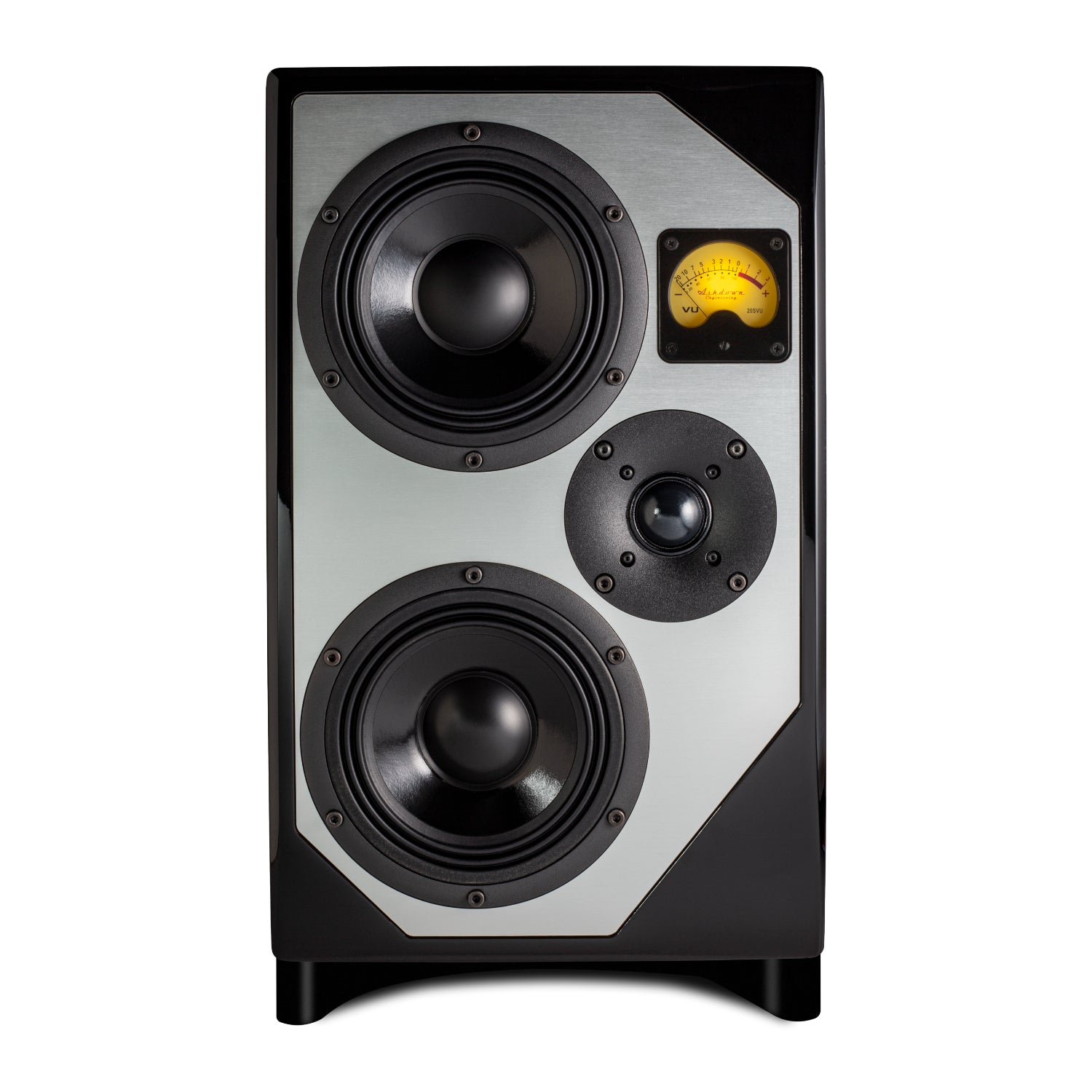
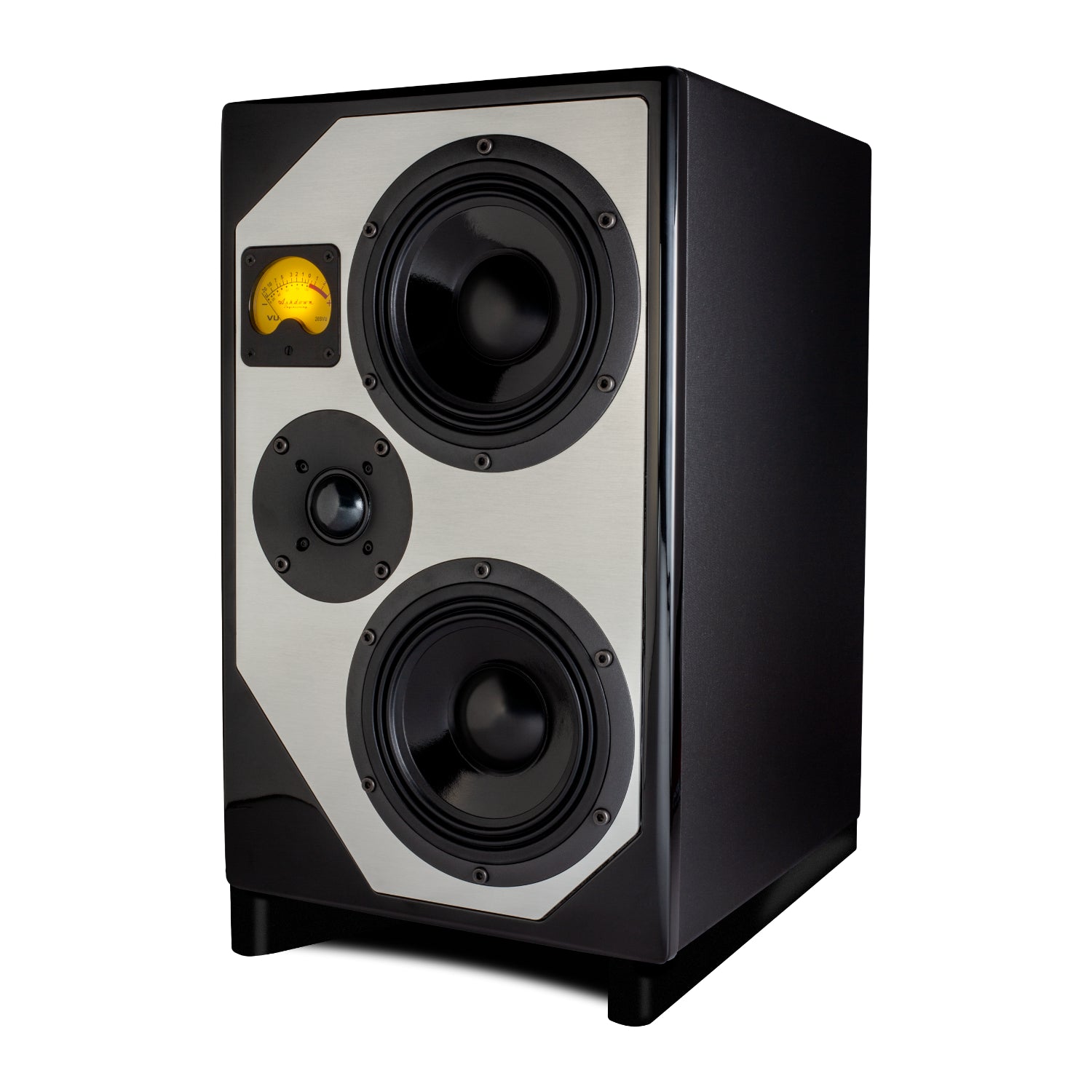
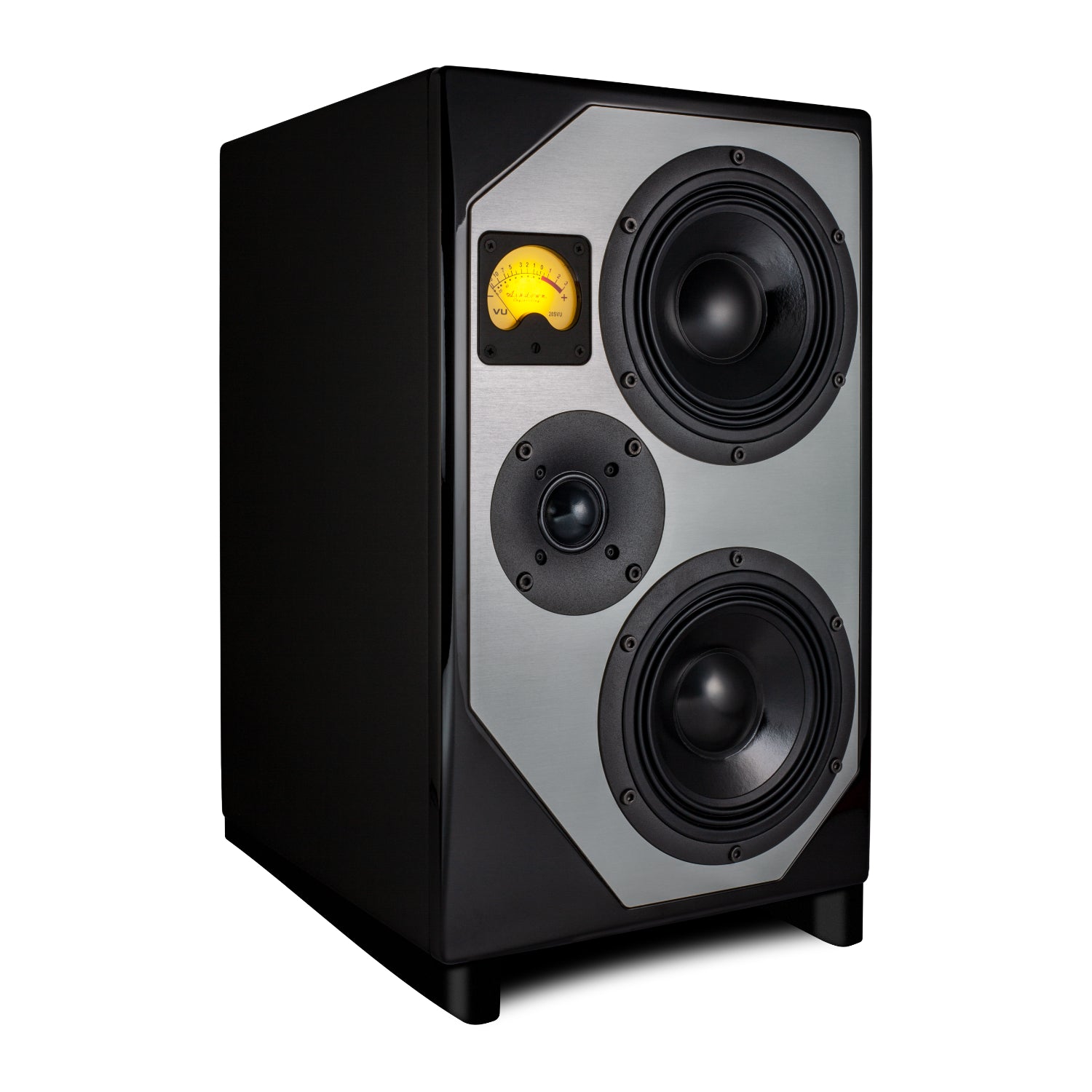
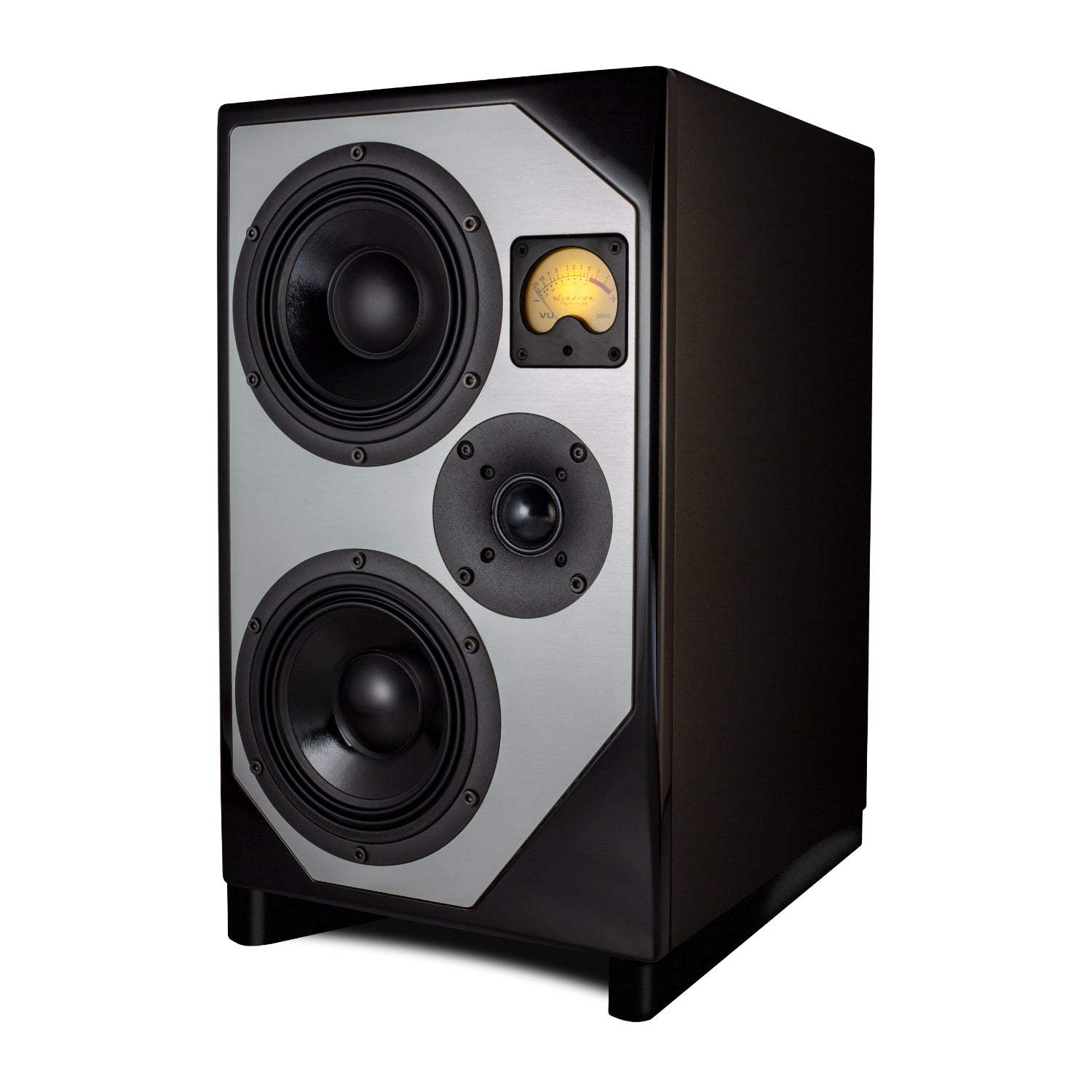
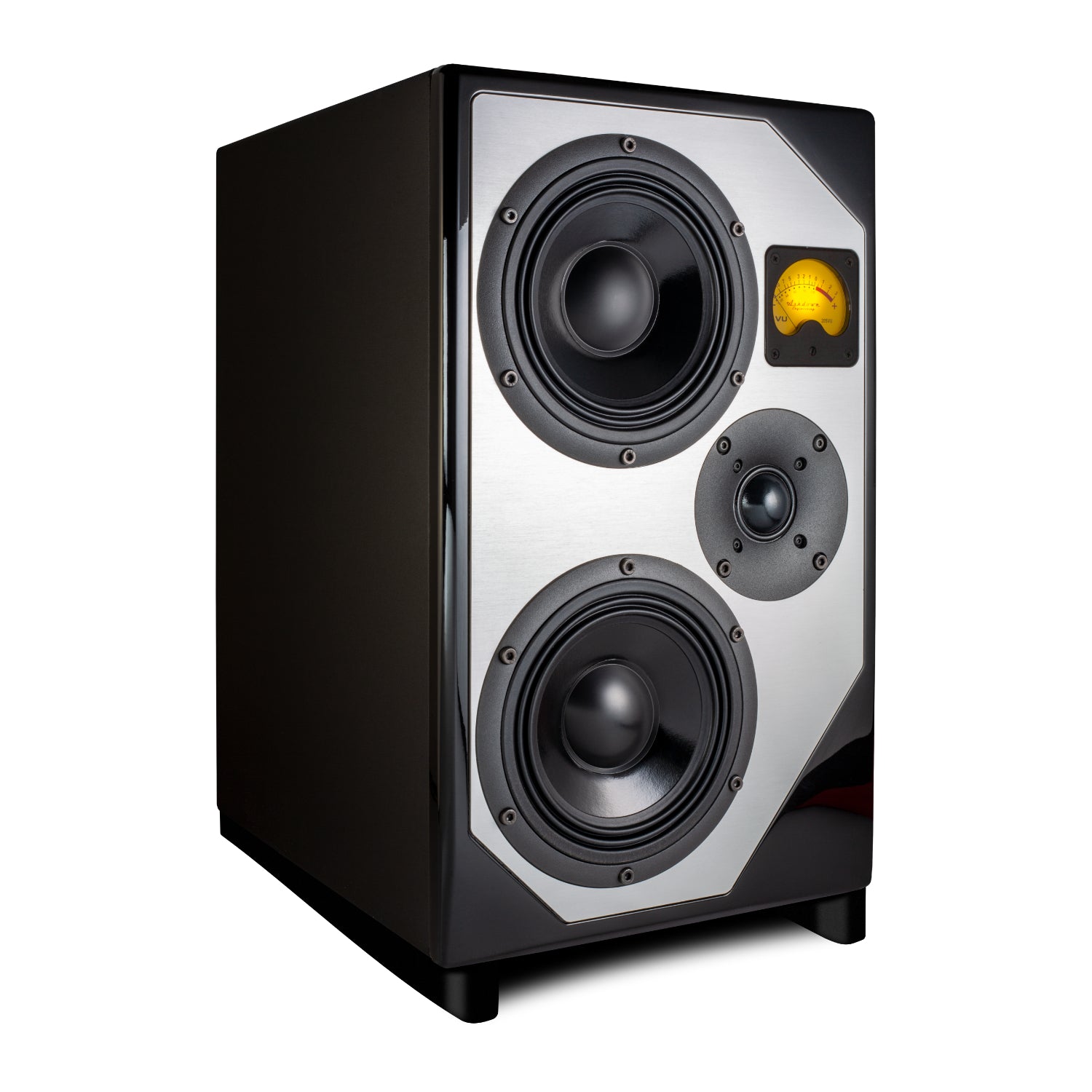
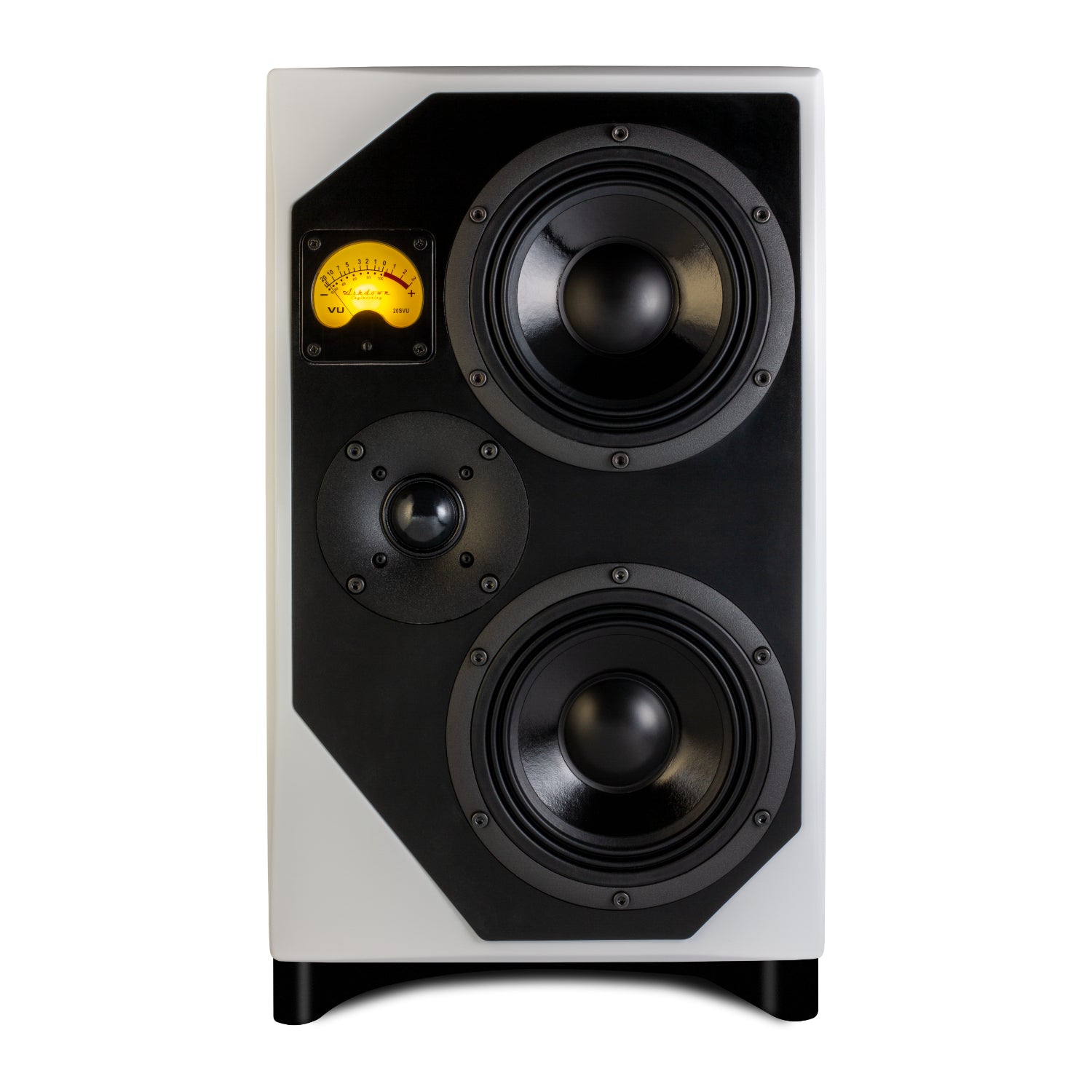
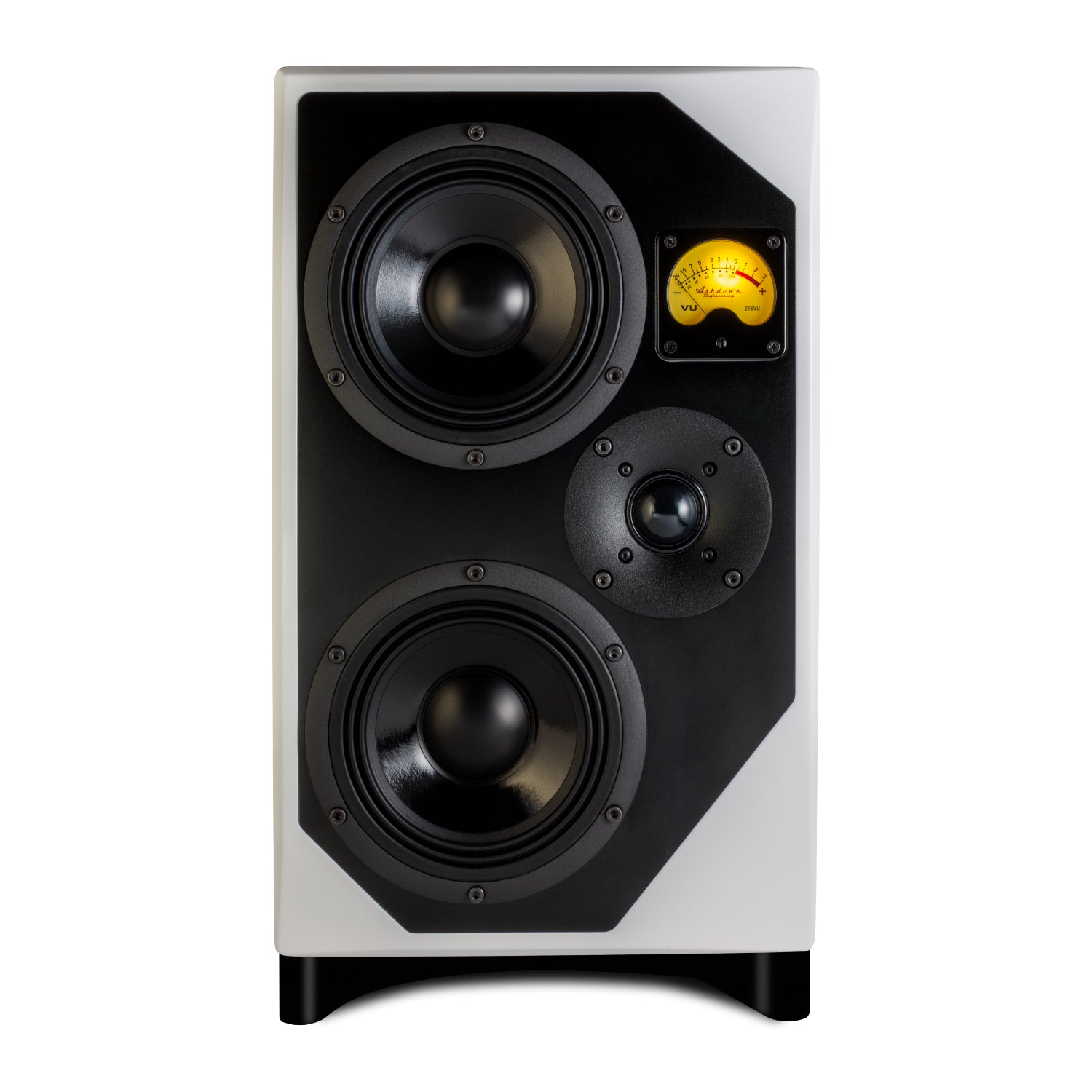
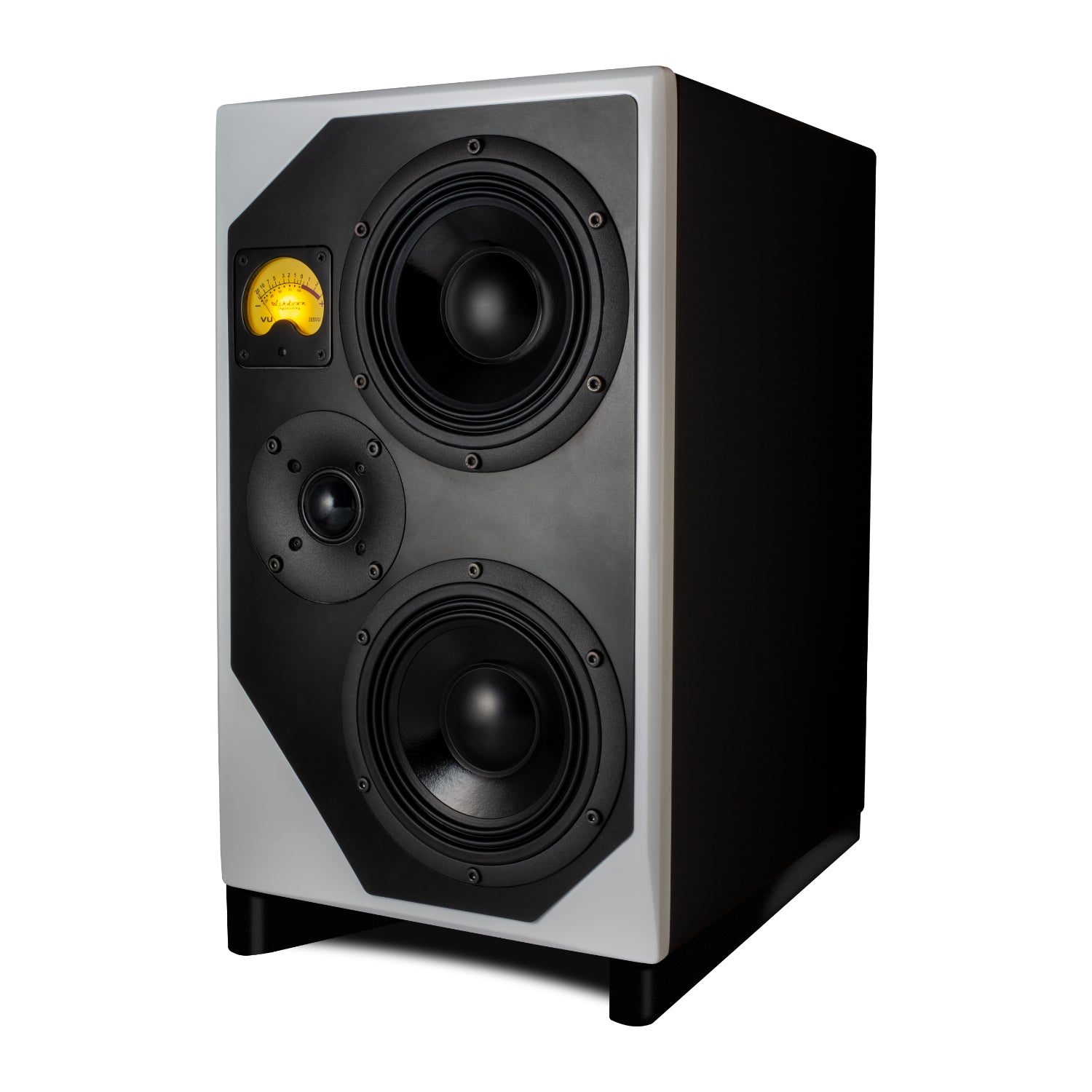
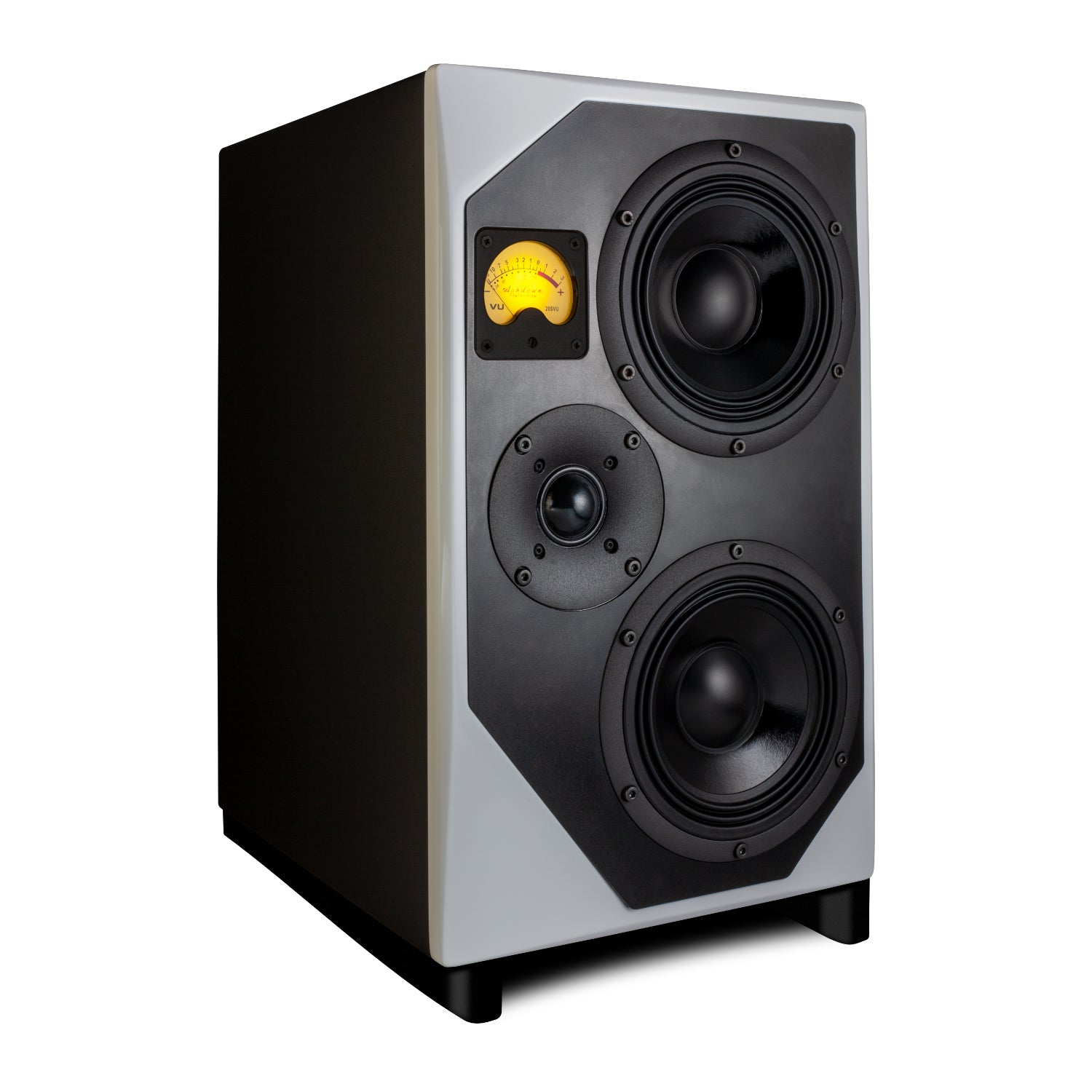
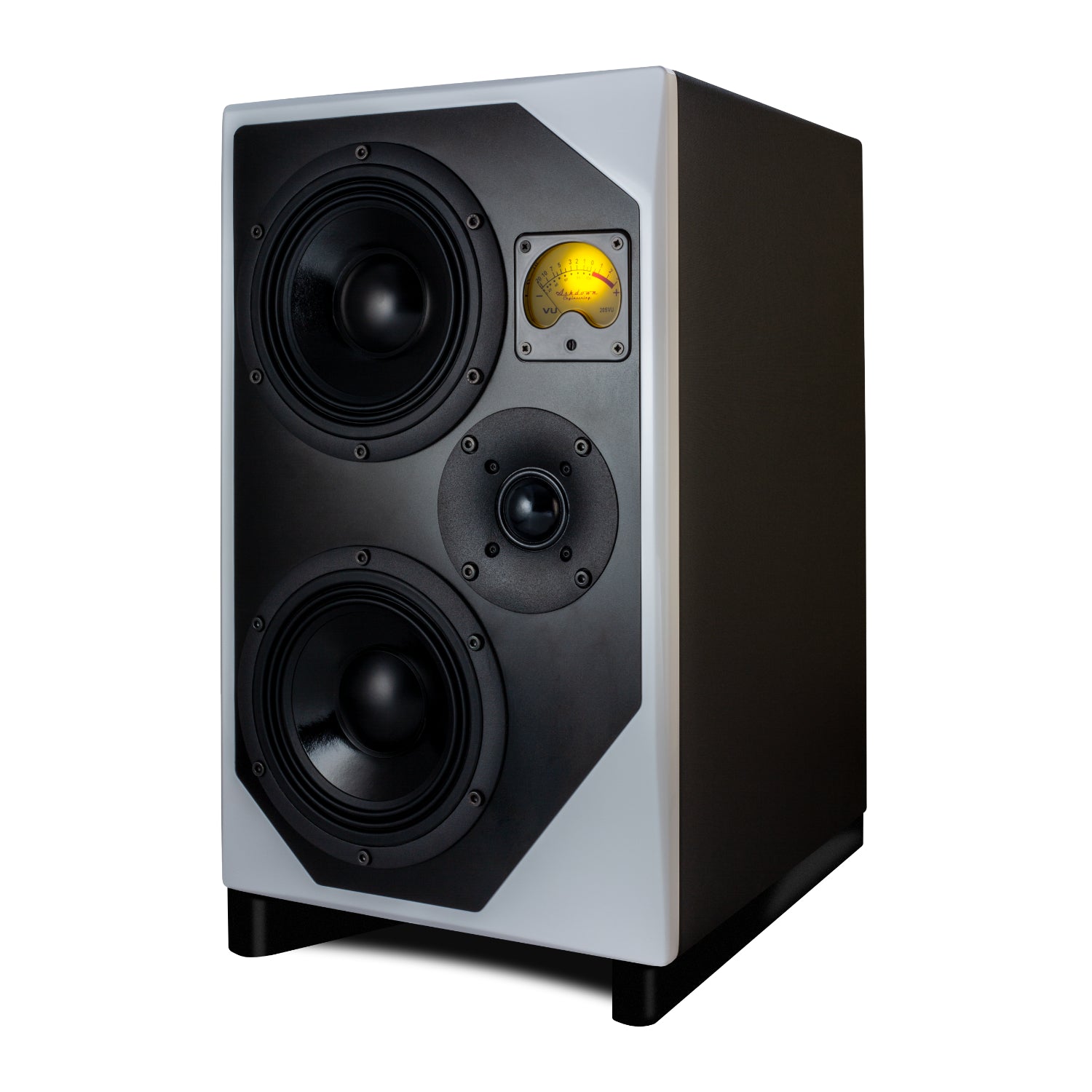
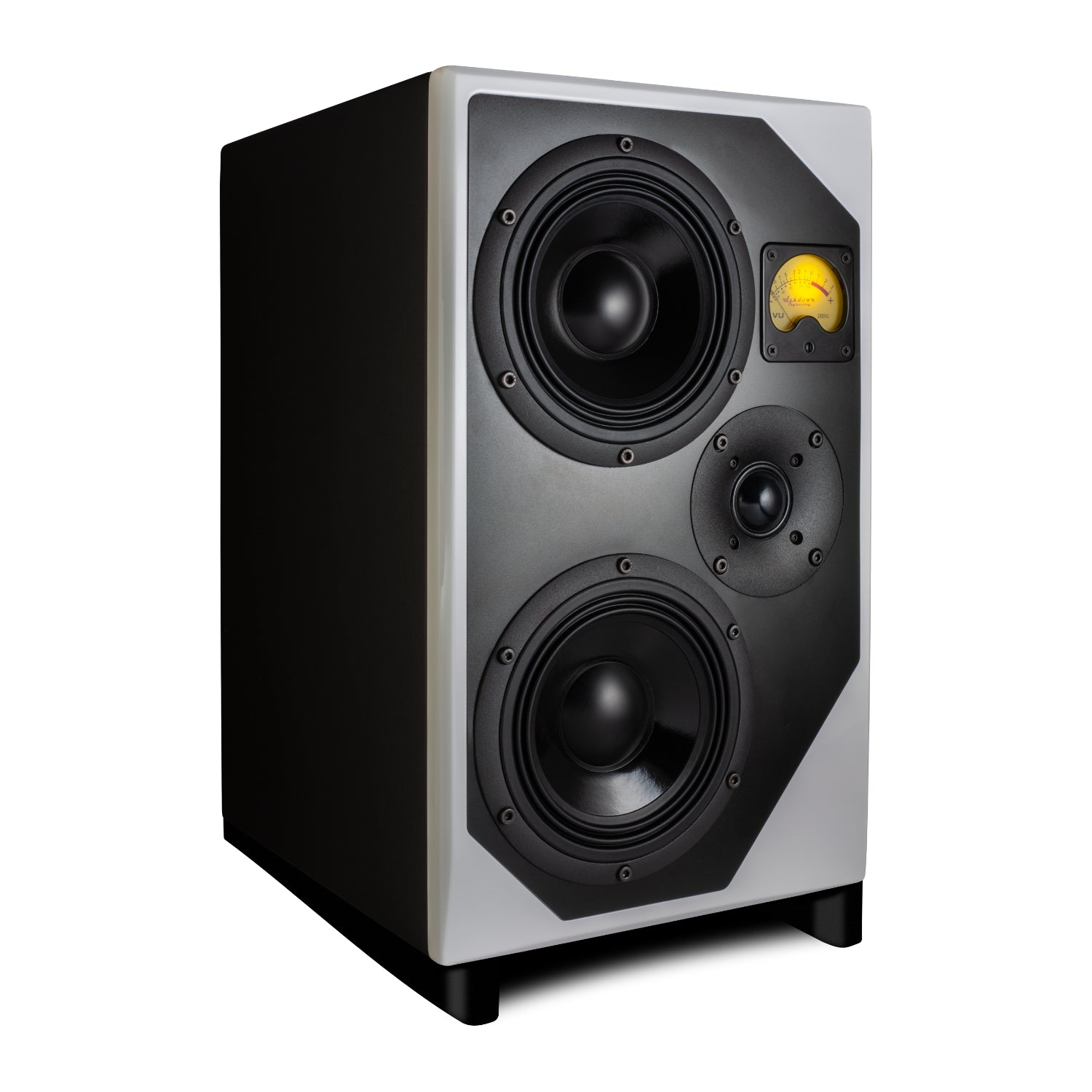
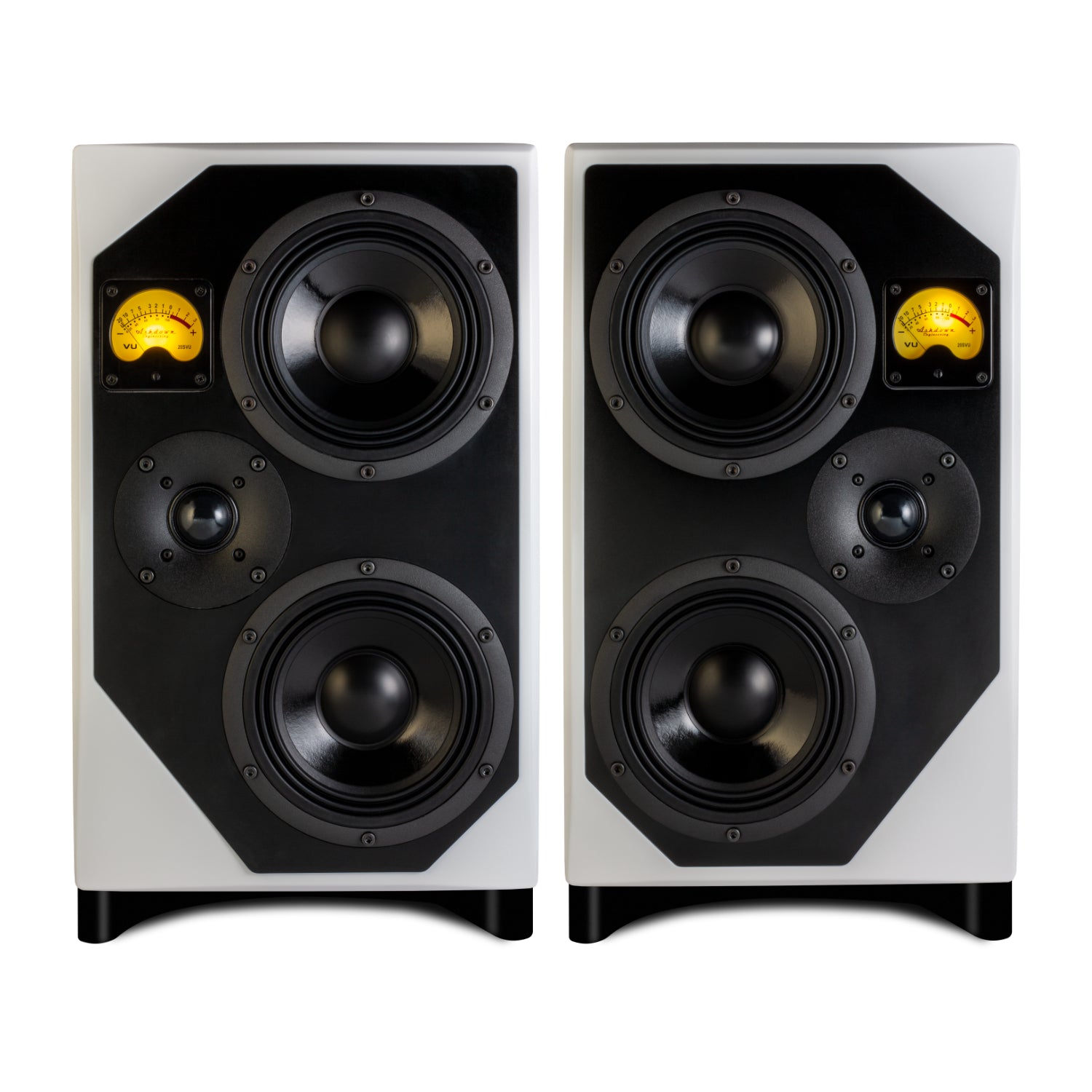
NFR-2 Reflex Studio Monitor - PAIR
ONLY AVAILABLE DIRECT SOLD IN PAIRS ONLY IN STOCK AND READY TO SHIP
Incremental improvements add up to big gains for our new Ashdown nearfield monitors
In a year long R&D project, we have researched every aspect of monitor design to set what we believe to be a new standard in near-field critical listening. From the choice of HF driver diaphragm material to the breed of sheep from which the cabinet damping wool was sourced, no detail was deemed too small for scrutiny in the development of the Ashdown NFR-2, an active near-field monitor designed exclusively for music recording and production in home and project studios.
A compact Professional Wideband Low Distortion Monitor designed expressly for low volume critical assessment of recorded material and content.
The NFR-2 will provide a full frequency response when used in small to medium control rooms where the largest dimension is 12 -14ft and 14-20ft respectively.
Particular attention has been given to the all-important Vocal area in respect of colouration and distortion, the resultant frequency response is very similar to the world famous BBC LS3/5 broadcast monitor albeit with an enhanced bass and treble extension. The sealed construction ensures that correct placement in the room is not necessary to achieve a great sound.
Twin power amplifiers rated at 100 watts each provide the required signals to the speaker drivers, crossovers split the signal accordingly, acoustic centre compensation eliminates the “suck out” so often encountered at the all-important crossover point, and a sub sonic filter helps to prevent cone damage from low frequencies. Finally an optical low distortion compressor reduces the signal being sent to the woofers in the case of accidental overdrive.
Construction features the obligatory Void free 11 lamination birch plywood, corner lock jointed to eliminate the use of beech corner blocks, extensive acoustic damping : all cabinet walls are coated in 17db wool felt and internal resonances are suppressed by the 100% long fibre wool stuffing.
Perhaps unusually, the process of developing a better monitor started by defining a list of the things it shouldn’t be able to do. Firm in the belief that no monitor can truly be a ‘Jack of all trades’, the team discarded any notion of creating a speaker that could operate successfully in a range of room sizes, instead following the thinking of the BBC by placing unfatiguing performance on a variety of program material, clarity in the all-important mid-band and a controlled, uncoloured LF response at the top of the list, along with removing the requirement for precise placement and optimising performance in rooms of around 15 - 20 square meters. In short, creating a monitor that music producers could live in harmony with
Class D amplification and DSP solutions whilst simpler and cheaper were rejected for several reasons, service life being the primary consideration followed closely by signal integrity and the need to carry out any further signal conversions.
The active crossover is a 24 dB /Octave Linkwitz-Riley network ensuring phase alignment is accurate
A 5-inch SICA LF driver features a rigid, die-cast chassis for precise voice coil alignment, a powerful vented magnet assembly for increased efficiency and reduced power compression, dual asymmetric roll surrounds to enable higher cone excursions and a copper demodulating ring.
The matching, tweeter was selected for its extended high frequency response, but with a gradual roll off after 20kHz to reduce the raspy high frequencies often encountered in digital material.
Pairs well with
Ships within 1-2 business days (UK Customer Orders Only)
5 Year Warranty
Engineered to Last, Trusted by the Best

NFR-2 Reflex Studio Monitor - PAIR
If you have any questions, you are always welcome to contact us. We'll get back to you as soon as possible, within 24 hours on weekdays.
-
Next-Day Delivery
Order by 3pm, Monday to Friday, and receive your order the very next day!
-
Customer Support
Got a question? Our dedicated team is ready to assist by phone or email.
-
FAQ’s
Need help fast? Our FAQs cover everything from orders to warranties
-
Contact Us
Let's talk! Whether it's a question, concern, or just to say hello, we're always here!
Product Specifications
User

manual
CLICK THE IMAGE ABOVE TO DOWNLOAD THE USER MANUAL
FAQs
Please read our FAQs page to find out more.
How Long Will My Order Take To Arrive?
Orders placed before 3pm (Monday-Thursday) are dispatched on the same day. UK Customer orders are shipped on a next-day delivery service via TNT.
Do You Shop To Outside Of The UK?
Currently, we do not facilitate orders to outside of the UK. If there is a specific product that you are after, be sure to check our Dealer Locator to find your closest Ashdown dealer!
If you cannot find a local dealer, please do not hesitate to get in touch and we will try and assist!
Do Ashdown Products Come With A Warranty?
Yes! All Ashdown product purchased include a 5 year warranty, giving you peace of mind and long-term support.
For more information on warranties, visit our Warranty Info page!
Where Can I Buy Ashdown Spares and Accessories?
Spare parts, footswitches, and accessories can be purchased directly through our in-house service team. If you're looking for something specific, our team will be happy to point you in the right direction!
How Can I Contact Ashdown Support?
Our passionate UK-based team is always ready to help. You can get in touch by phone or email, and we'll be happy to assist with any questions.
